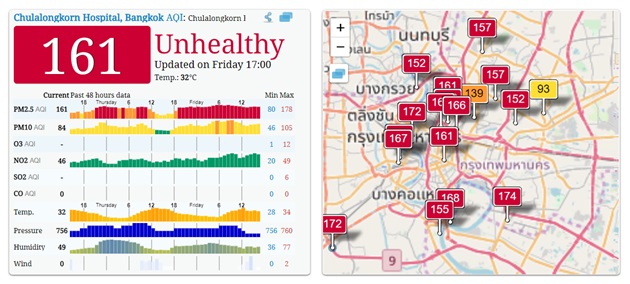
What causes Bangkok air pollution?
For anyone that has not been keeping up with the news about Bangkok’s hazardous smog this week, all you need to know is the Thai capital is once again choking in dangerous dust.
To the point that only 3 of the 48 areas monitored are said to be even remotely ‘safe’, and even they are only a couple of points under fine particle matter (PM2.5) levels that are proven to be dangerous.
As Bangkok chokes in dirty air yet again, many people are asking why is Bangkok air pollution so bad in 2020 and getting worse?
What causes Bangkok smog, and are there ways to fix the problem?

Open-air burning
Many Thais have grown up in and outside Bangkok with the philosophy that getting rid of garbage is as simple as burning it.
That is why, even in Bangkok’s hazardous smog, you will still see Thais participating in open-air burning. Whether that is on their own private land, or at a business they work in or own.
The only way to stop this from occurring is for the Thai government to institute large fines for those that are caught.

Road transportation
Even though Bangkok has an excellent public transportation system, many Thais still prefer to drive. Even if this means sitting in some of the world’s worst traffic jams for several hours a day.
Road transportation causes enormous amounts of fine particle matter to be dispersed into the air, thus worsening Bangkok pollution.
It is not only high levels of PM2.5 that is a worry in Bangkok either.
Benzene, a chemical found in petrol, is also found in high levels in Bangkok air. Again, due to the large number of cars and motorbikes on the road.
Even contact with low to moderate levels of benzene over time can cause shaking, headaches, vomiting, breathing problems and an eventual loss of consciousness.
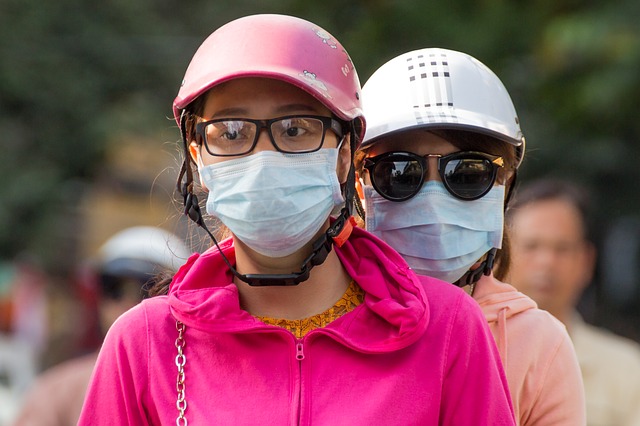
Last time Bangkok air pollution was this bad, the Thai government did react quite quickly. They closed schools in certain badly affected areas, clamped down on heavily polluting vehicles, recommended residents wear masks when outside and used cloud-seeding aircraft in an attempt to cause rain.
After the worse of the pollution disappeared, however, much went back to normal in Thailand’s capital city.
With Thai government monitoring of vehicles driven with malfunctioning exhaust pipes needing to be improved, they will eventually be forced to clamp down on those driving vehicles that are not road-worthy.
This could be instituted beginning with a fine when vehicles are deemed to be polluting, and could end with drivers not having their licenses renewed when driving vehicles that billow smoke.
While Thai prime minister Prayut Chan-o-cha is on the right track when he says these types of vehicles will be ‘monitored’ (see today’s tweet below), banning of these vehicles needs to happen sooner rather than later if Bangkok smog is ever going to improve.
วันนี้ค่าฝุ่น #PM25 ยังอยู่ในระดับสูง ผมให้ตำรวจเร่งรัดออกข้อกำหนดสั่งห้ามใช้รถที่ปล่อยควันดำ รถที่ถูกจับจะต้องขึ้น watch list เพื่อเพิ่มความเข้มงวดในการตรวจสภาพรถที่ต่อทะเบียน ขอความร่วมมือใครมีส่งข้อมูลรถควันดำ โทร 1584 ช่วงนี้ใส่หน้ากากอนามัยหลีกเลี่ยงกิจกรรมกลางแจ้งด้วยนะครับ pic.twitter.com/gj0EPlqf2R
— ประยุทธ์ จันทร์โอชา Prayut Chan-o-cha (@prayutofficial) January 10, 2020
Industrial pollution
Thailand is a recently developed country, with the immense industry that usually involves.
While some Thai industrial plants follow international standards of pollution control. many do not.
Various Thai governments have instituted laws in an effort to force Thai factory and other industrial plant owners to commit to releasing less pollution into the air.
These laws have not been strong enough, and enforcement has been lax.
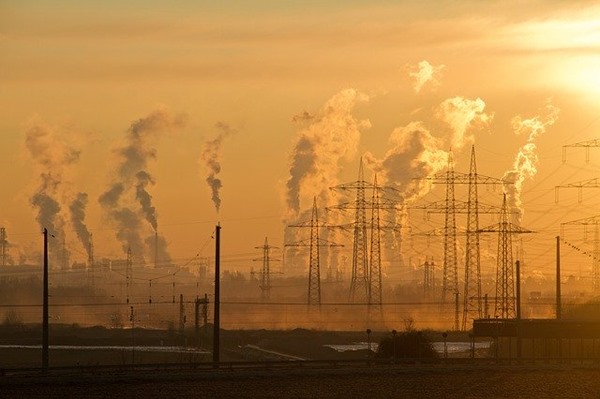
So bad is industrial pollution in Thailand, it affects the water as much as it does the air.
Rivers like the Chao Praya River that runs through Bangkok are themselves so polluted with industrial wastewater that, even as far back as 2011, residents along certain areas of the river were complaining the toxic chemical pollution in the water made it unsafe to swim in or to use.
The only way to stop this from occurring is for the Thai government to first enforce industrial pollution laws with hefty fines, and then to shut down factories that refuse to comply.
This may cause economic damage to certain industries to begin with but, as public health has to be a priority, this problem must eventually be tackled.
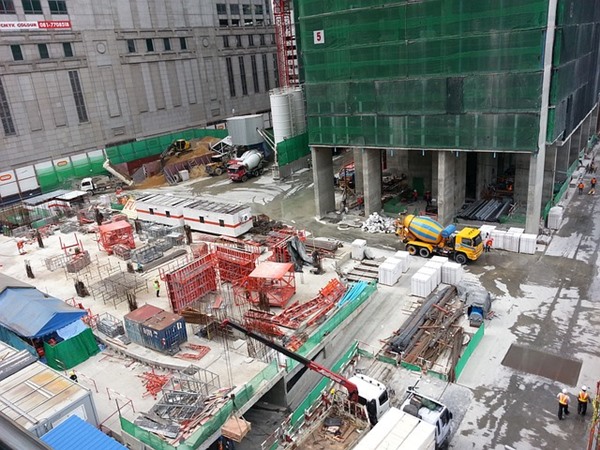
Construction
There is always construction occurring in every area of Bangkok.
Construction that also contributes to Bangkok air pollution due to the dust coming from construction sites. The emissions emitted from construction vehicles, and even from fires that are burned on construction sites to eliminate waste, are also a significant problem.
Construction is also one of the industries contributing to water pollution in the Thai capital. This is due to illegal wastewater discharges, oil and chemical discharges and to other pollutants involved in the construction of a building.
As the construction industry shows little willingness to police itself, the Thai government will eventually be forced to implement greener ways of building and force construction companies to comply.
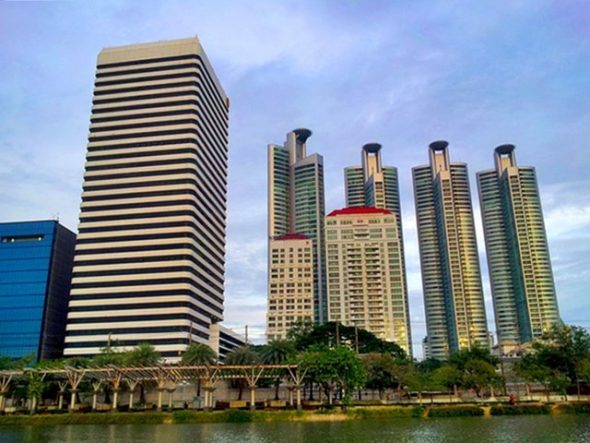
Wind
Another reason Bangkok air pollution is so bad is due to the wind, or lack thereof.
Overall, Bangkok is not a windy city. That means, once PM2.5 particles are released into the air, they quickly build up as there is not enough wind to disperse them.
This causes the city’s air pollution to stagnate for days at a time.
It then worsen as more PM2.5 particles are released into the already choking air due to the above mentioned things.
What can be done to stop Bangkok pollution in its tracks and improve air quality?
As mentioned above, there are many things the Thai government can begin to implement now to stop Bangkok pollution and to drastically improve the city’s air quality.
There are many more.
At least according to a recently published report from the UN Environment, the Climate and Clean Air Coalition, and the Asia Pacific Clean Air Partnership collaboration.
That report names 25 things the Thai government could implement in order to stop Bangkok pollution in its tracks, improve air quality and ultimately reduce premature mortality in the region due to pollution by one third. (See above short video for all 25 measures).
The agencies that put together the report are already working with the Thai government in an effort to get these cleaner air measures kicked off, and to reduce levels of PM2.5.
Let’s hope the Thai government is paying attention.



